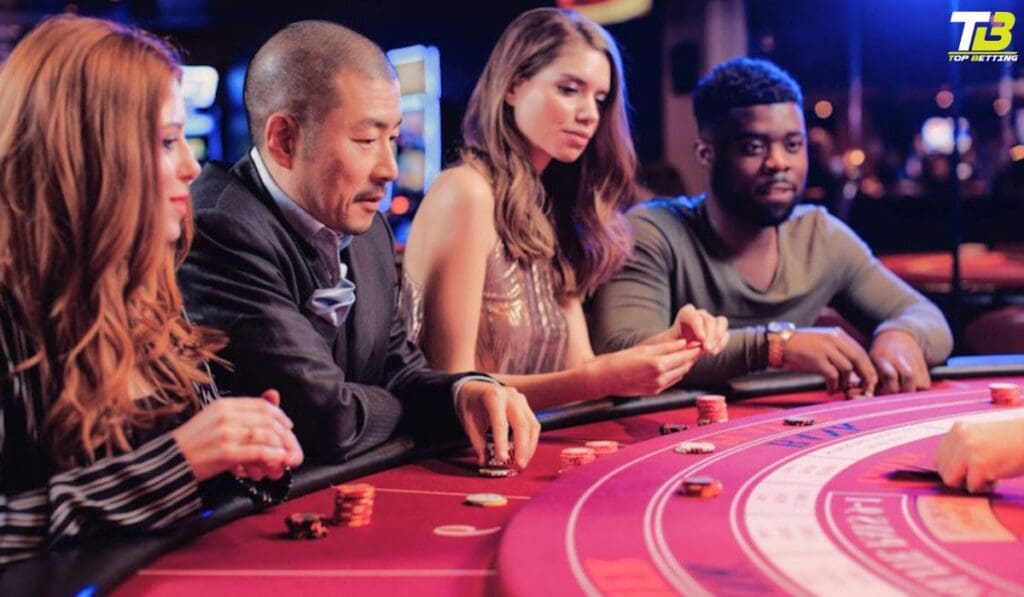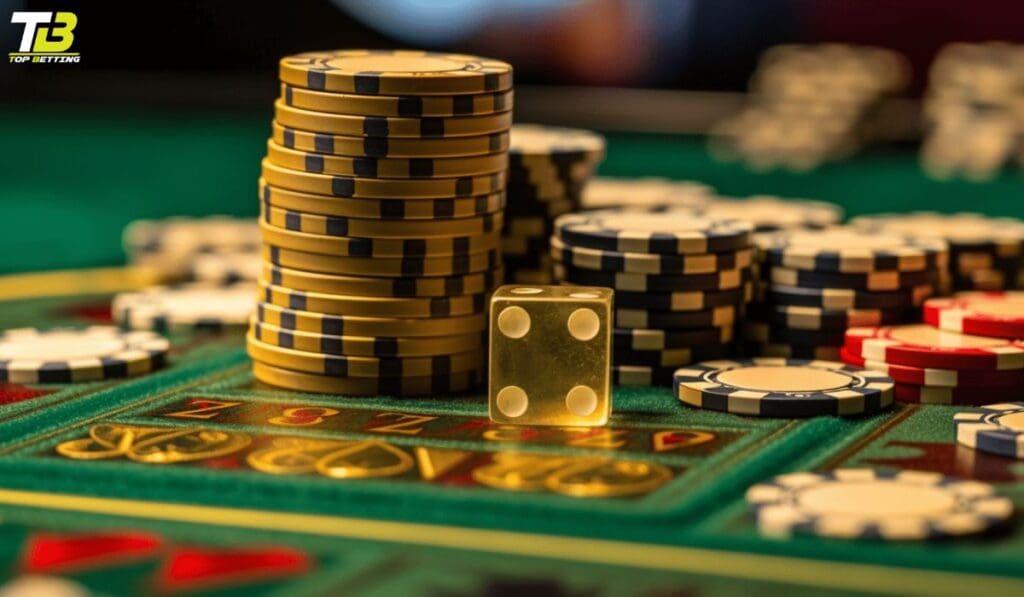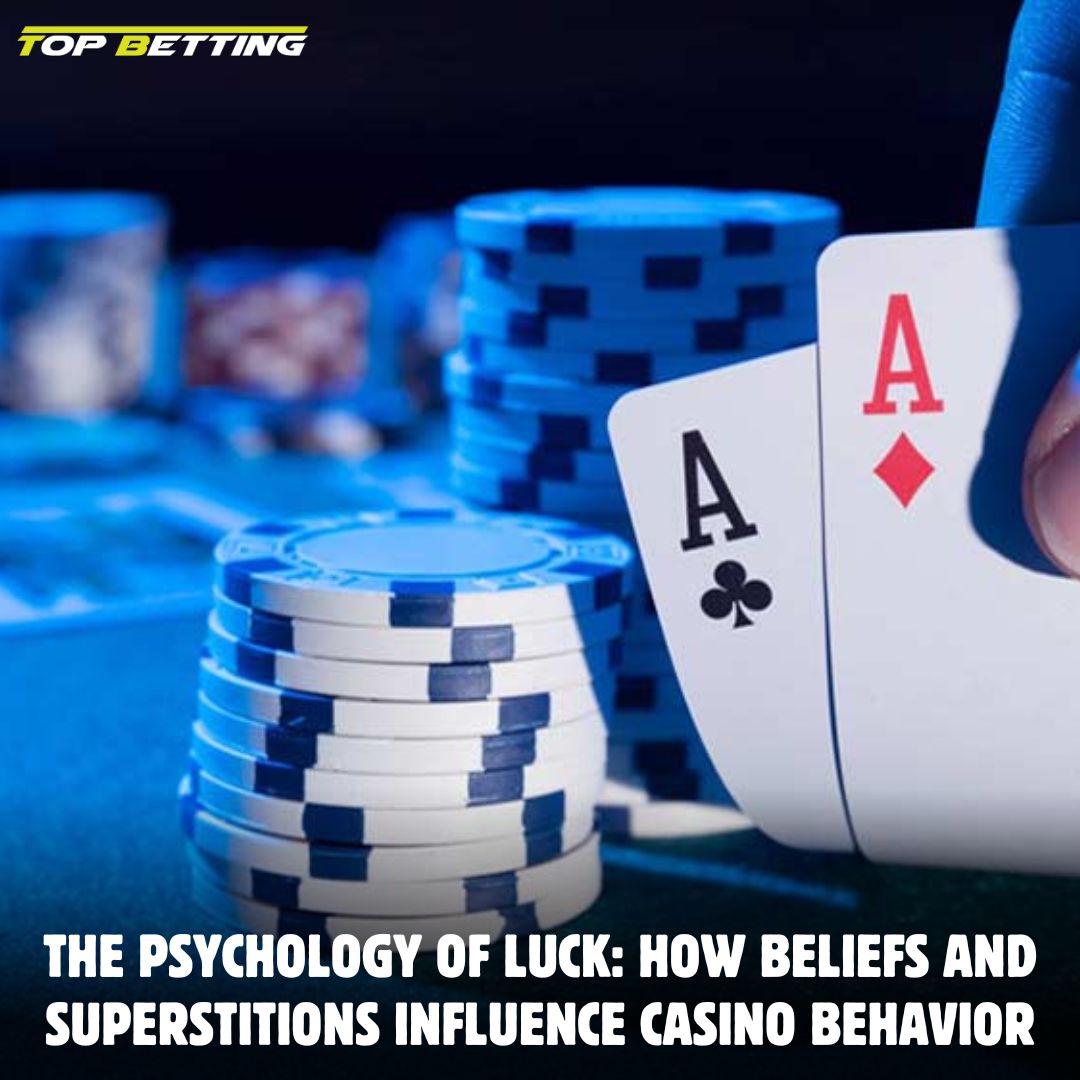
The Psychology of Luck | How Influence Casino Behavior
Step inside any casino, and you’ll witness a fascinating display of human behavior. From the euphoria of a winning streak to the slump of a losing bet, emotions run high in these unique environments. But what exactly influences our beliefs and actions when it comes to gambling? The answer lies in the psychology of luck.
The concept of luck and its impact on behavior
Luck, by definition, is the belief in something outside of our control that can affect the outcome of events. It is a concept deeply ingrained in human culture and plays a significant role in our decision-making process. The idea of luck can either empower individuals or make them feel helpless, depending on their beliefs.
Believing in luck can have a profound impact on gambling behavior. Some individuals may be more inclined to take risks, believing that luck will favor them, while others may be more cautious, relying on luck as a protective factor. Understanding this dynamic is crucial for both gamblers and the casino industry.
Research has shown that individuals who attribute their successes or failures to luck tend to exhibit different behaviors compared to those who attribute them to skill or effort. The belief in luck can influence the amount of time and money spent gambling, as well as the willingness to take risks. This interplay between luck and behavior is what makes casinos such captivating places.
The role of beliefs in luck and superstitions
Beliefs about luck vary greatly across cultures, and they often stem from deeply rooted traditions and religious practices. These beliefs can shape our perception of luck and influence our gambling behavior.
For example, in Chinese culture, the number 8 is considered lucky, while the number 4 is seen as unlucky. This belief has a direct impact on the behavior of Chinese gamblers, who may prefer to bet on numbers associated with good luck.
Superstitions and rituals are also prevalent in the casino environment. Many gamblers have their lucky charms, such as a rabbit’s foot or a four-leaf clover, which they believe bring good fortune. Some even engage in specific rituals, like blowing on dice or tapping the table before making a bet, as a way to influence luck.
Superstitions and rituals in the casino environment
Superstitious behavior in casinos is not limited to individual gamblers. Casinos themselves often incorporate superstitions into their operations to enhance the gambling experience and attract more customers.
For example, some casinos avoid using the number 13 in their room or floor numbers, as it is widely regarded as unlucky. They may also incorporate specific colors, such as red, which is associated with luck in many cultures.
These subtle cues can create a more favorable environment for gamblers, making them feel luckier and more inclined to continue gambling.
Understanding these superstitions and rituals is essential for both gamblers and casino operators. By recognizing and leveraging these beliefs, casinos can create an atmosphere that encourages gambling behavior, increasing their chances of success.
The psychology behind lucky charms and rituals
The use of lucky charms and rituals in gambling is often driven by psychological factors. These behaviors provide a sense of control and reduce anxiety, even if they have no logical basis.
Human beings have an innate desire for control and certainty. When faced with uncertain outcomes, such as gambling, we seek ways to regain a sense of control. Lucky charms and rituals provide a psychological anchor, giving us the illusion that we can influence the outcome through our actions.
Additionally, these behaviors can act as a form of self-soothing. Gambling can be a stressful activity, as it involves risk and uncertainty. Engaging in superstitions and rituals helps individuals cope with this stress by providing a sense of comfort and familiarity.
Cognitive biases and their influence on gambling behavior
Cognitive biases play a significant role in shaping our gambling behavior. These biases are systematic errors in thinking that can affect our decision-making processes.
One such bias is the gambler’s fallacy, which leads individuals to believe that past events can influence future outcomes. For example, if a roulette wheel has landed on black for several consecutive spins, some gamblers may believe that red is now more likely to occur. This bias can lead to irrational betting patterns and false beliefs about luck.
Another bias is the illusion of control, which leads individuals to overestimate their ability to control random outcomes. This bias is often seen in gamblers who believe that their actions, such as blowing on dice or using a specific technique, can influence the outcome of a game. Understanding these biases is crucial for both gamblers and casinos to make informed decisions and avoid falling into irrational patterns of behavior.

The placebo effect and its connection to luck
The placebo effect, commonly associated with medical treatments, also has relevance in the realm of luck and superstitions. The placebo effect is the phenomenon where a person experiences a perceived improvement in their condition simply because they believe they are receiving a beneficial treatment.
In the context of luck, the placebo effect can influence gambling behavior. If an individual believes that a lucky charm or ritual will improve their chances of winning, their confidence and performance may increase. This perceived improvement can create a self-fulfilling prophecy, leading to actual positive outcomes.
Understanding the placebo effect allows us to recognize the power of belief in shaping our experiences. Whether it is a lucky charm or a positive mindset, the placebo effect reminds us of the importance of perception in influencing our actions and outcomes.
The influence of media and popular culture on beliefs about luck
Media and popular culture play a significant role in shaping our beliefs about luck. Films, television shows, and advertisements often depict characters who rely on luck to achieve success. These portrayals can influence our perception of luck and reinforce the belief that it is a vital factor in determining outcomes.
Additionally, media and popular culture often glamorize the idea of being lucky. We are bombarded with stories of overnight success and individuals who seem to have a natural ability to defy the odds. These narratives can create unrealistic expectations and lead individuals to believe that luck alone can guarantee success.
Recognizing the influence of media and popular culture is crucial in understanding our own beliefs about luck. By critically evaluating these portrayals, we can develop a more balanced perspective and make informed decisions.
Customs Prior to Rolling
Prior to the roulette wheel or dice roll, participants set up an enthralling setting. Driven by thrills and the enigma surrounding fortune, they derive solace from distinctive customs. Despite their odd appearance, these have profound psychological significance.
Before you roll the dice, consider blowing them. People act on the assumption that it influences the result, even though this is unproven. This exercise offers you the impression that you have control over the game. Before taking a gamble in the game, it’s a soothing, almost meditative process.
Before making a decisive move, players frequently touch the table, starting a ritual. They mentally get ready for the impending task with the aid of this small action. Like a countdown, the rhythmic tapping offers a reassuring regularity. This provides a brief window of concentration before the game takes an unexpected turn.
These customs assist customers in mentally preparing for the rollercoaster ride at the casino. They provide a stable routine in an uncertain environment. These choices have a big emotional impact on players even though they don’t directly change how the game turns out. These customs provide players with psychological and superstitious comfort prior to the unpredictable.

How casinos capitalize on the psychology of luck
Casinos are well aware of the psychology of luck and the role it plays in gambling behavior. They employ various strategies to capitalize on these beliefs and create an environment that encourages continuous play.
One such strategy is the use of near-misses. Near-misses are outcomes that are close to a win but fall just short. Research has shown that near-misses can increase motivation and prolong gambling behavior, as they create a perception of almost winning. This psychological effect keeps gamblers engaged and hopeful, even in the face of losses.
Casinos also employ sensory cues to enhance the gambling experience. The flashing lights, ringing sounds, and vibrant colors create a stimulating environment that triggers positive emotions and associations with luck. These sensory cues can influence our perception of the outcome and make gambling more enticing.
Understanding how casinos capitalize on the psychology of luck allows us to approach gambling with a more critical mindset. By recognizing these strategies, we can make informed decisions and engage in responsible gambling practices.

Conclusion: Understanding the psychology of luck for a better gambling experience
The psychology of luck is a fascinating field that sheds light on the complex interplay between human beliefs and behavior in the casino setting. Beliefs about luck and superstitions have a profound impact on our gambling behavior, influencing the amount of time and money we spend on gambling and our willingness to take risks.
By understanding the psychology behind lucky charms, rituals, and cognitive biases, we can make better decisions and engage in responsible gambling practices. Recognizing the influence of media and popular culture allows us to develop a more balanced perspective on luck.
For casinos, understanding the psychology of luck is crucial for creating an environment that encourages gambling behavior. By capitalizing on superstitions and employing various strategies, casinos create an atmosphere that keeps gamblers engaged and hopeful.
In conclusion, the psychology of luck is a powerful force that shapes our beliefs and actions in the casino environment. By delving into this fascinating field, we can gain a deeper understanding of human behavior and make more informed decisions when it comes to gambling.




